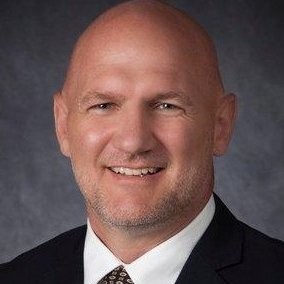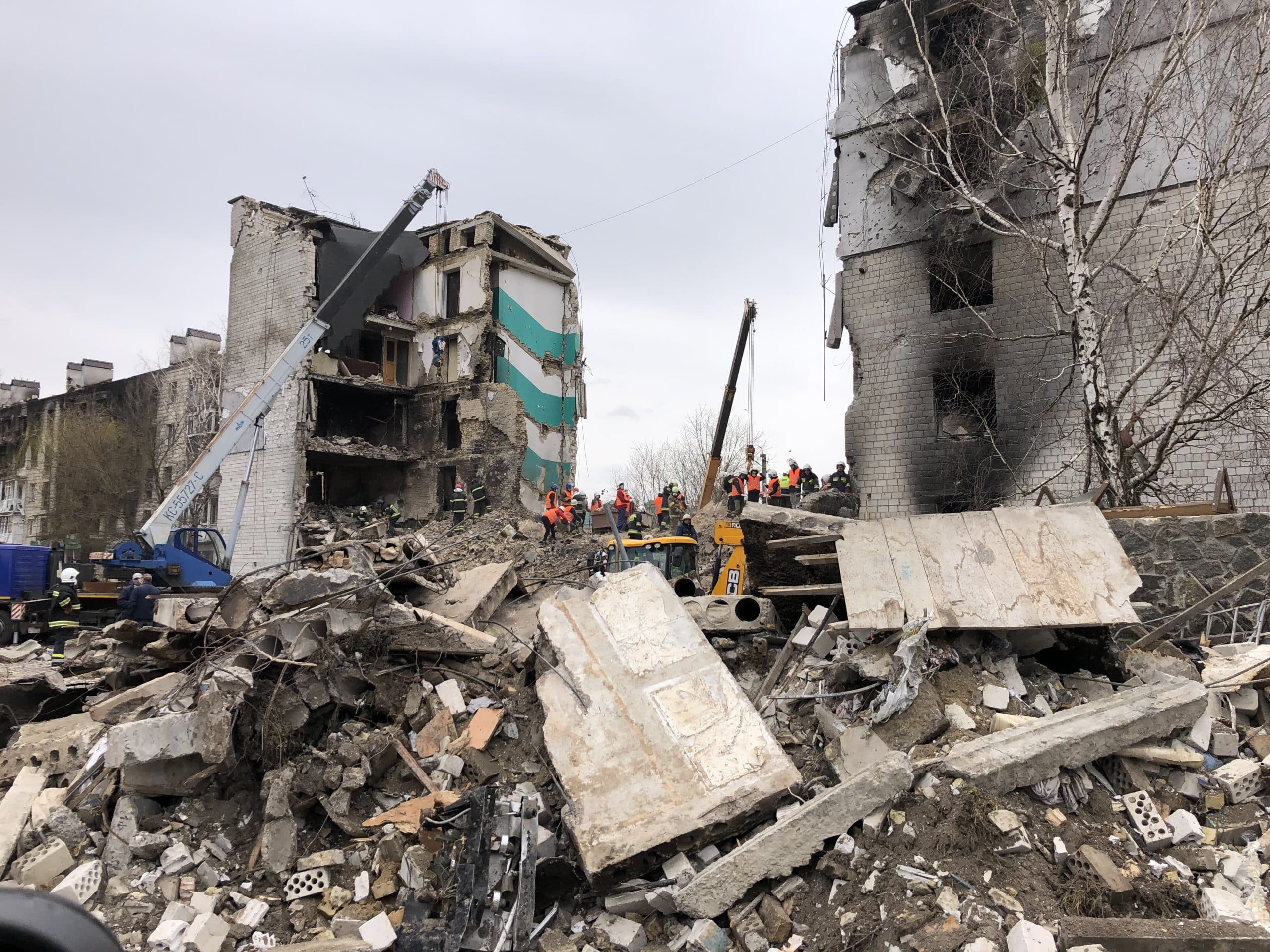From Maeystown to Ukraine

While the Russian invasion of Ukraine and subsequent war began more than eight months ago, what began as constant media coverage of the region has dwindled significantly.
For Maeystown resident John Steingruby, recent stays in Ukraine have provided a first-hand reminder of the ongoing conflict as well as a renewed appreciation for life here in Monroe County.
Steingruby, a director of program execution at the St. Louis headquarters of a large international company, returned about a month ago from one of several work-related trips to Ukraine.
He said he was “struck” by the amount of destruction in that country since the beginning of the year.
Steingruby’s employment typically keeps him in the United States, but he volunteered to lead engineering teams in Ukraine “when it was clear there was going to be a war,” visiting the country in early 2022 to get his bearings before any projects began.
For all of his trips, Steingruby entered Ukraine through Poland. During his first visit, he reported an “unbelievable number” of refugees in Warsaw ahead of anticipated Russian military action.
When he visited Kyiv in early June to meet his Ukrainian project team, Steingruby said just getting across the border was “fascinating.”
Once in the country, he recounted seeing “miles of destruction,” including Bucha – where Russian forces executed at least 458 Ukrainian civilians in early March.
During his most recent trip, Steingruby said the work site for his project was about 200 yards away from a “completely destroyed apartment.”
He also spoke of a nearby area comprised of about 100 vehicles which had been destroyed during a bombing campaign.
“Each one of those cars was a family or a driver,” Steingruby remarked solemnly.

Despite the “constant potential for Russian aggression” and blackout conditions for 25-40 percent of the country at any given time, Steingruby said the Ukrainian people remain united.
“Everyone I talked to (in Ukraine) said, ‘We’re going to win,’” Steingruby reported, adding there is “a sense there’s something really important going on.”
Steingruby said he made a practice of walking to work to get a feel for “how it is for regular people at ground level.”
He shared that he “somehow feels safer in that society” and would rather walk around Kyiv than St. Louis, due in part to the sense of solidarity locals share in working toward a common goal.
Steingruby said the hundreds of people with whom he spoke – including soldiers who had been on the front lines – were “very friendly.”
One of the soldiers is a member of Steingruby’s team. Although educated as an engineer, the Ukrainian man enlisted to join the fight and was given an unfamiliar role he described as a “shooter.”
The team member told Steingruby he joined the cause “not knowing what to do, but knowing something should be done.”
Through his other interactions with residents, Steingruby has gained a sense for how long the conflict has really been going on.
He said the most current fighting can be traced back to 2014, but Ukraine has truly been defending its autonomy for over a century.
“Ukraine will never give up,” Steingruby declared. “They will always fight for freedom.”
When he returned home in October after being in Ukraine for a month, Steingruby said the experience allowed him to better appreciate the freedoms American citizens enjoy.
While catching up with past issues of the Republic-Times delivered while he was abroad, Steingruby took particular interest in a series of columnist Bill Ott’s “Ott Observations” and letters to the editor in response to those columns.
“I appreciate that (Ott) has an opinion,” Steingruby began. “I am really glad I live in a country where we can disagree and put it in print. ”
In contrast, he cited countries such as Russia and China in which people are imprisoned for public dissent against the ruling party or popular opinion.
“We should celebrate the fact that we can disagree openly and without ‘canceling’ each other,” Steingruby said.
He added that the lack of “life or death” situations experienced by average Americans creates scenarios in which it is possible to “invent conflict.”
No such luxury exists in Ukraine – although Steingruby said the “real stuff” serves to bring everyone together.
He said the conflict has created individuals “unified in what they’re doing to achieve freedom. We can solve so many problems when it’s real life and really important.”
Steingruby reported being asked by Europeans about the problems in the United States, although he noted most in Ukraine were “upbeat and happy” to have an American working alongside them.
“Other countries think people (in America) are going at each other’s throats,” he said. “If you watch some media and politicians, you’d think we’re in a civil war.”
Steingruby credited sensationalism of some national media outlets for creating the perception of disunity in the United States.
“The average person cares about issues, but we’re not as divided as we’re made out to be,” Steingruby continued, pointing out that Republicans and Democrats still use the same checkout kiosks at Walmart.
He feels “it’s a good situation” if one can express an opinion without fear of government retaliation.
Steingruby said he will be returning to Ukraine soon, calling the experience “really enriching.”
His team remains in contact, providing updates and any information which may affect “operational plans” during Steingruby’s next trip to the area.
During his latest stay in Kyiv, he brought a little taste of Monroe County to Ukraine in the form of a bottle of bourbon from Stumpy’s Spirits Distillery in Columbia.
“I know they appreciated it,” Steingruby said.
The gift offered a temporary distraction from the daily threat of attack, reminding Steingruby of all he has to be thankful for when he returns stateside.
“I thank God we live in a country where we are free to disagree,” he concluded.






